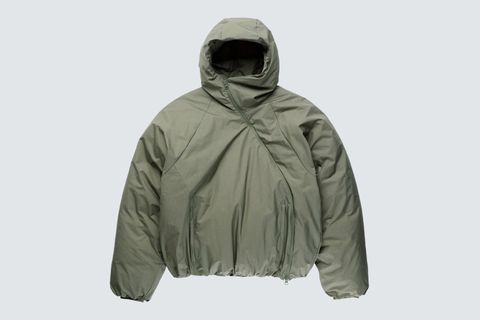The Victoria's Secret Fashion Show Is Back, But Can It Compete With Savage X Fenty?
Plot twist: Amid an exhaustive rebrand, Victoria's Secret will bring back its famed fashion show in 2023.
The news, first reported by Retail Dive, was announced on March 3 by Victoria's Secret Chief Financial Officer Timothy Johnson. "We’re going to continue to lean into the marketing spend to invest in the business, both at top-of-funnel and also to support the new version of our fashion show, which is to come later this year," the executive said in an earnings call.
The revamped fashion show comes as Victoria's Secret continues to overhaul its public image, plagued by several recent controversies that became the subject of Victoria's Secret: Angels and Demons, a 2022 documentary series charting the lingerie brand's fall from grace.
In 2018, Ed Razek, former chief financial officer of L Brands (Victoria's Secret's then-owner), told Vogue that transgender and plus-size models weren't a part of the "fantasy" Victoria's Secret was trying to sell. Controversy followed the company into 2019, thanks to revelations regarding longstanding ties between Jeffrey Epstein and former L Brands CEO Les Wexner. Victoria's Secret subsequently canceled its fashion show, an event that had come under fire for peddling a narrow (read: thin, white) definition of beauty.
Both Razek and Wexner eventually departed the company, but the damage was done: In 2020, The New York Times published a searing exposé of the bullying, misogyny, and sexual misconduct that pervaded Victoria's Secret's corporate culture. And in 2021, former Victoria's Secret models and employees detailed the company's dark underbelly on Fallen Angels, a podcast produced by C13Originals.
To rehabilitate its image, Victoria's Secret embarked on a complete overhaul, cutting ties with L Brands and hiring Martha Pease and Martin Waters to replace Razek and Wexner, respectively. In 2021, it nixed its famous Angels and replaced them with the "VS Collective," comprised of Naomi Osaka, Priyanka Chopra, Megan Rapinoe, and Paloma Elsesser. Now, the company's marketing materials regularly feature plus-size models and women of color.
Its decision to apply this renewed vision to the Victoria's Secret Fashion Show — a male gaze-y affair that once encouraged extreme dieting and equated thinness to sexiness — has elicited mixed response. To some, the relaunch of the event strikes as a desperate grab for relevance.
"This is a win for inclusivity for inclusivity’s sake," Lizzo tweeted. "If brands start doing this only because they’ve received backlash then what happens when the ‘trends’ change again? Do the CEOs of these companies value true inclusivity? Or do they just value money?"
On the other hand, one Twitter poll revealed that nearly 43% of approximately 40,000 respondents were excited to learn of the fashion show's comeback.
Still, one glaring question remains: Is a revamped Victoria's Secret Fashion Show even necessary in the age of Savage X Fenty? Rihanna's lingerie brand — valued at $1 billion — has made a point to cast models of all shapes, sizes, colors, and abilities in campaigns and e-commerce since launching in 2018. The same year, Savage X Fenty staged its first runway show, a dance-meets-burlesque extravaganza that screamed sex without feeling exploitative or demeaning (a refreshing alternative to the Victoria's Secret playbook).
In 2023, Rihanna is expected to release the fifth edition of the Savage X Fenty Show, whose past iterations have been a critical and commercial success (for the most part, anyway). It seems unlikely that the Victoria's Secret Fashion Show will be able to compete with the cult of Rih, whose businesses have valued inclusion and diversity from the start.
The strides Victoria's Secret has taken away from its past and towards inclusion are commendable — and necessary, in order to stay afloat. But to truly move on, the company may have to leave the Victoria's Secret Fashion Show in the past.


